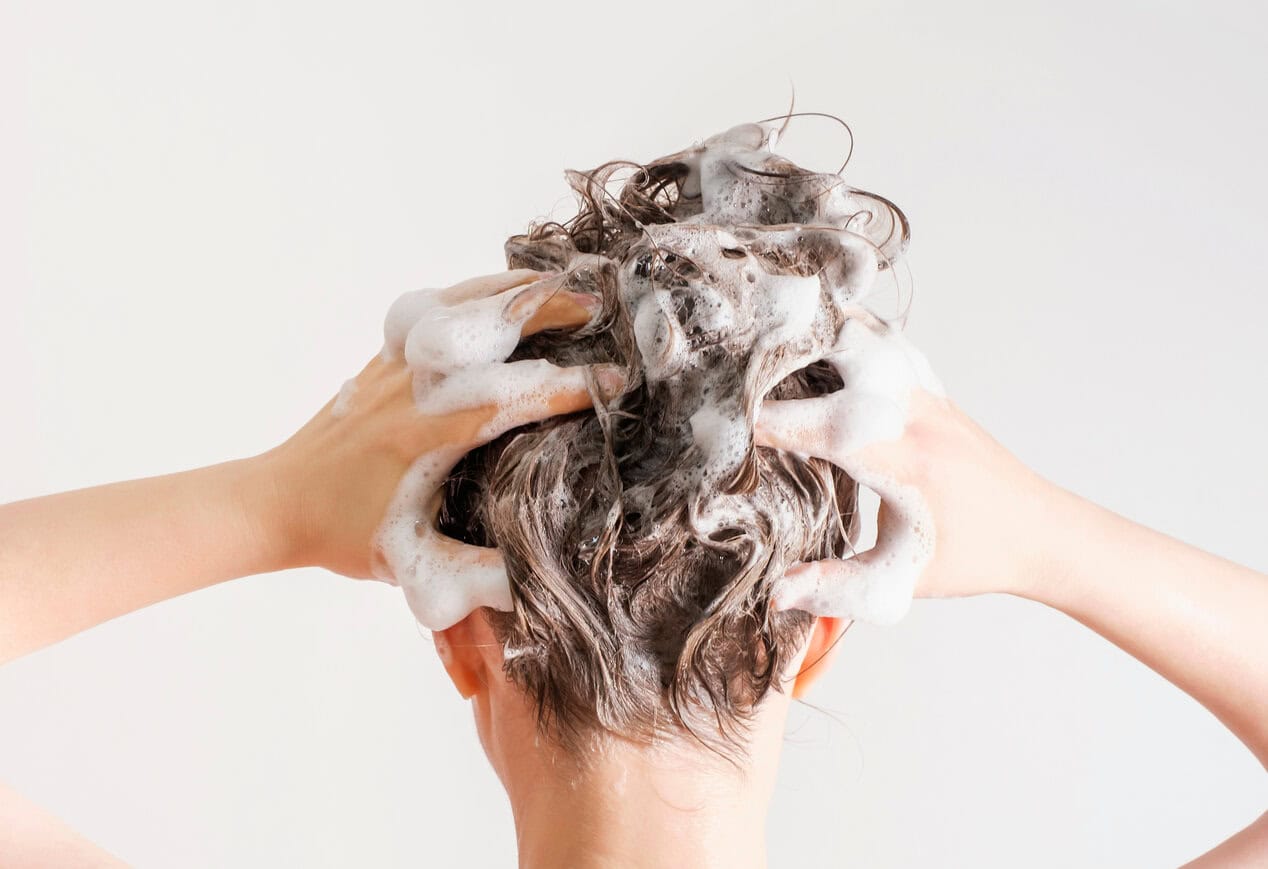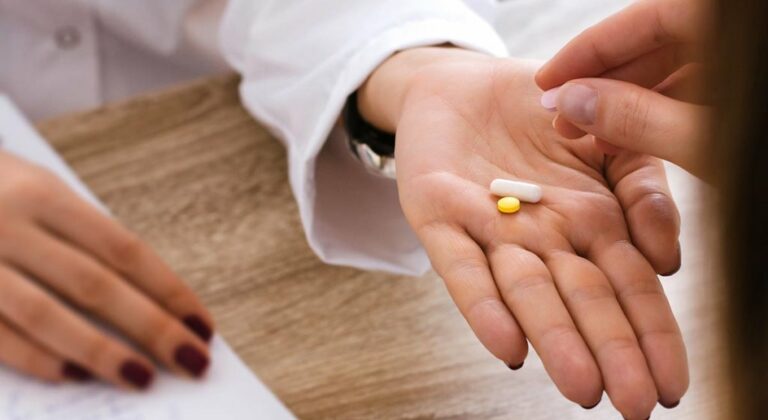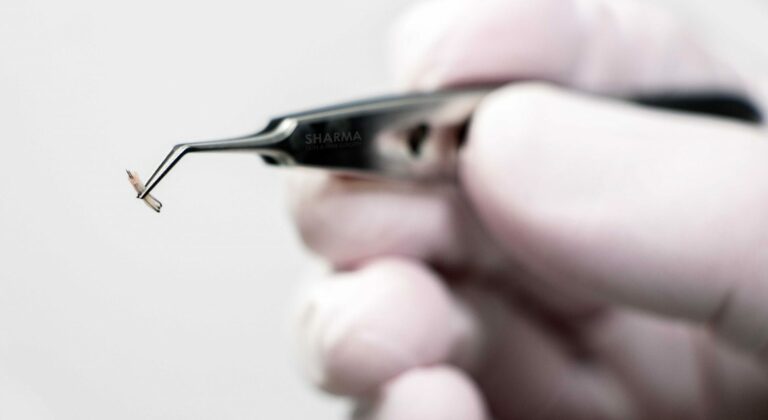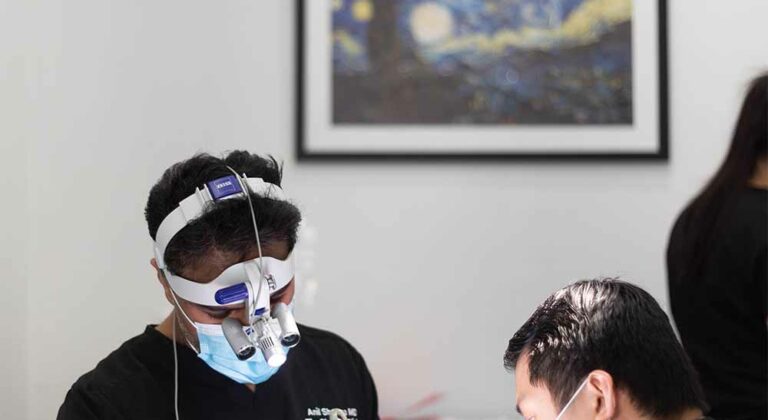Undergoing a hair transplant is a life-changing procedure, offering a permanent solution to hair loss that can be transformative for self-image and confidence. However, post-operative care plays a critical role in ensuring its success.
One of the most common questions we hear from our patients is, “When can I start washing my hair normally?” Let’s delve into the specifics of post-operative hair care and provide some essential tips for optimal results.
Why it’s important to follow proper hair washing guidelines after surgery
Understanding how to wash your hair after a transplant is crucial. After surgery, your scalp will be sensitive and the newly transplanted grafts require time to anchor securely. Washing your hair too prematurely or aggressively can dislodge these grafts, potentially impacting the overall outcome of your procedure. However, it is still important to keep the scalp clean.
Here are the top three reasons why following post-surgical washing instructions is so important:
- It promotes healing and prevents infection: After your surgery, your scalp will have tiny wounds where the hair follicles were transplanted. Keeping the area clean with proper washing is crucial to prevent infection, which can hinder the healing process and, in rare cases, lead to complications like folliculitis (inflammation of the hair follicles).
- It prevents graft dislodgement: Newly implanted grafts need 1-2 weeks to fully anchor. During this period, incorrect hair washing techniques can dislodge these delicate grafts, leading to reduced hair density in the long run.
- It maintains scalp hygiene and comfort: Keeping your scalp clean will reduce itching, scabbing, and discomfort. Gently washing your hair ensures that blood clots and scabs are properly managed, speeding up your recovery process.
When is it safe to start washing your hair?
Hair transplant recovery varies from person to person, so it’s always best to follow your surgeon’s advice. However, we’ve outlined a typical timeline for when to begin washing your hair after a transplant.
| Day 3-5: Initial Washing | You can typically begin the initial washing process around day three to five post-surgery, but it’s crucial to be as gentle as possible. Use a non-medicated shampoo recommended by your surgeon. Before applying, dilute the shampoo with water so it’s not too harsh on your sensitive scalp. Gently pat the scalp to cleanse it, either with your hands or a soft sponge. Avoid rubbing or scrubbing as this can damage the delicate new grafts. To rinse, use lukewarm water as hot water can be too harsh on the healing scalp. To minimise disturbance to the grafts, allow lukewarm water to flow gently over your head, rather than using direct water pressure. |
| Week 1-2: Continued Care | Your washing routine should become more frequent one to two weeks after surgery. It’s important to use the same gentle shampoo and continue following the delicate patting and rinsing techniques to avoid disturbing the healing grafts. As your scalp heals, scabs may form around the grafts. Resist the urge to pick or scratch them; they will naturally fall off. Continue gentle washing during this healing period. |
Tips for effective hair washing post-transplant
To ensure the best outcome for your hair transplant, follow these essential hair-washing tips:
- Use lukewarm water: Avoid hot water, which can irritate the sensitive scalp.
- Pat hair dry with a soft towel: Don’t rub your scalp dry — gently pat it with a soft towel to avoid causing trauma to the grafts.
- Avoid hair dryers: In the early stages of recovery, avoid using hair dryers. The heat and force of the air can disrupt the healing process and dislodge grafts.
- Avoid strong shampoos: Choose mild hypertolerant shampoos as these can significantly reduce scabbing.
- Avoid styling products: For the initial few weeks, refrain from using styling products like gels, waxes, or hairsprays. These can irritate the scalp and interfere with the healing process.
READ: What is the Best Shampoo to Use After a Hair Transplant?
Following these guidelines can significantly influence how well your hair transplant heals. Remember, every individual’s recovery journey is unique. If you have any questions or concerns, don’t hesitate to consult your surgeon for tailored advice to ensure the best possible results.
At the Sharma Clinic, we prioritize personalized post-transplant care to ensure optimal recovery and long-term success. Our team provides clear instructions and ongoing support, guiding you through each step of the healing process.
Ready to restore your confidence? Contact us today for expert care and a tailored hair restoration journey.
BOOK NOW
Talk to a Hair Transplant Expert
Are you looking for the most effective treatment plan to reverse the effects of hair loss? Dr. Sharma has a long-lasting commitment to offering the best services in the industry. Not only is he experienced with hair loss treatment, but he is passionate about helping each patient receive excellent results.

Share this:
Medically reviewed by
Updated on
Have a question?
Find out how we can help you look feel your absolute best
Contact us 780-476-7970


